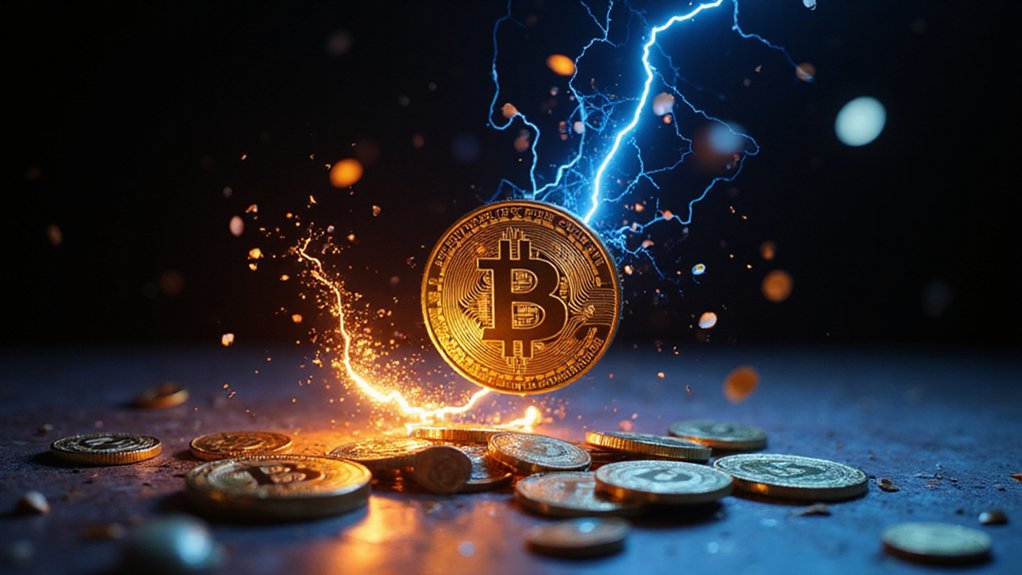How does a family known for gold-plated penthouses and real estate empires suddenly find itself traversing the labyrinthine world of memecoins and digital wallet partnerships?
The Trump family’s cryptocurrency ventures have generated over $320 million in profits from memecoins alone, even as their flagship $TRUMP token plummeted 87% from its peak—a proof to the peculiar economics of digital asset trading fees and early positioning.
The $TRUMP memecoin launched strategically before the presidential inauguration, capitalizing on political momentum to drive initial trading volumes.
While retail investors witnessed their holdings evaporate, the creators continued profiting from transaction fees—a revenue model that rewards volatility regardless of directional price movement.
This dichotomy between public losses and private gains has sparked congressional scrutiny, particularly among Democratic legislators questioning potential corruption in high-profile cryptocurrency ventures.
The family’s digital asset portfolio now represents 40% of their $2.9 billion wealth increase, marking a dramatic shift from traditional real estate holdings to speculative digital tokens.
Their newest venture, the $TRUMP Wallet developed through a Magic Eden partnership, promises enhanced trading capabilities while offering $1 million in promotional rewards to attract users. The partnership culminated in an exclusive crypto dinner where attendance required spending between $55,000 and nearly $38 million on $TRUMP memecoins.
However, confusion surrounding official domain ownership and legitimate announcements suggests internal coordination challenges within the broader Trump Organization structure.
These cryptocurrency activities have created unexpected political ramifications, derailing bipartisan legislation like the GENIUS Act, which aimed to establish thorough digital asset regulations. Senate Democrats introduced the End Crypto Corruption Act specifically targeting presidents and lawmakers from issuing or endorsing digital assets like meme coins.
The stablecoin ventures particularly concern lawmakers who view potential conflicts of interest between political influence and cryptocurrency market participation. Like other meme coins such as Dogecoin and Shiba Inu, the Trump tokens have attracted investors seeking speculative returns through high-risk digital assets that blend political themes with volatile trading opportunities.
Market volatility inherent in cryptocurrency trading has created a paradoxical situation where declining token values generate substantial creator profits through trading fees.
The Trump family’s involvement demonstrates how memecoin economics can benefit issuers while devastating retail participants—a dynamic that regulators increasingly scrutinize for consumer protection violations.
As regulatory environments evolve around high-profile cryptocurrency participants, the Trump family’s digital asset empire illustrates broader tensions between political influence, market manipulation concerns, and the largely unregulated memecoin ecosystem.
Their success despite token depreciation highlights fundamental questions about cryptocurrency market structure and the distribution of profits between creators and participants.









